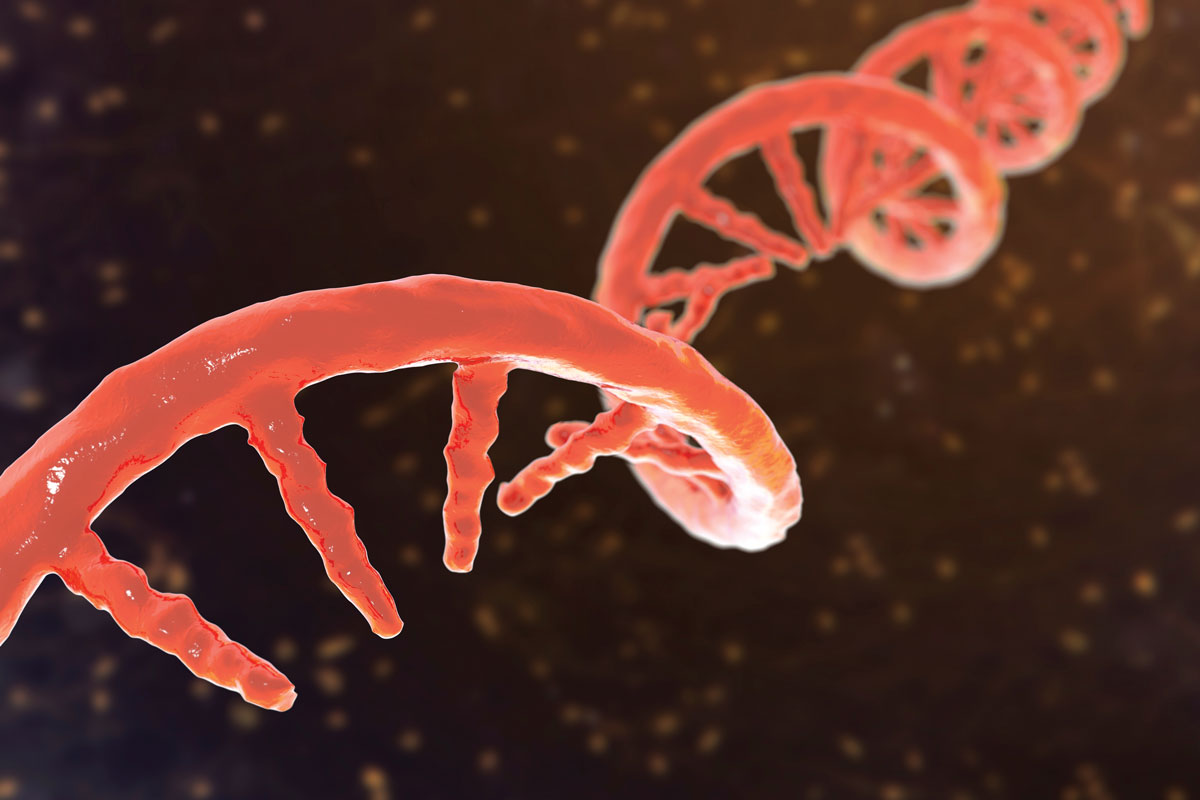A new artificial intelligence–guided design program is coming to messenger RNA (mRNA).
In a new paper published in Science, researchers from the company Raina Biosciences have detailed their new AI-based design program, called GEMORNA, which can provide mRNA sequences to be used in a broad array of applications, from personalized vaccines to cancer therapies (2025, DOI: 10.1126/science.adr8470).
Designing an mRNA molecule is more complicated than stringing codons together and feeding that strand to a ribosome. Multiple combinations of coding sequences and untranslated regions can yield the same protein. The goal with mRNA design is to come up with the most efficient combination of coding sequences and untranslated regions to get the desired protein.
But the design process can be slow going, with trial and error often needed to find the best arrangement.
“Over the last decade or so, traditional strategies for designing mRNA really have been quite laborious,” says Timothy Lu, cofounder and chairman of Raina. The team, he says, has developed “a generative AI platform that’s trained on massive datasets of mRNA that allows you to essentially do what we call zero-shot optimization of mRNA medicines.”
In a nutshell, Raina’s GEMORNA can generate an mRNA coding sequence from a given protein sequence in a matter of hours. Untranslated regions are generated by a separate program and are joined to the mRNA by humans. In this case, “zero-shot” means that the program doesn’t need anything else besides the protein sequence to give a result.
“We can optimize things like durability, expression levels, and other functionalities using this really powerful algorithm, and that allows us to potentially significantly shorten the time it takes to design and optimize a given mRNA therapeutic, as well as achieve superior performance,” Lu says.
One of the most appealing ways to apply this technology would be making personalized cancer vaccines. Lu says that in these cases, there isn’t time to do a lot of trial and error on what mRNA sequence would be best, but a program that optimizes the mRNA sequence early could cut out a lot of unnecessary work.
AI-based mRNA design has been around since 2023, says Helen Gunter, a senior postdoctoral fellow at the Australian Institute for Bioengineering and Nanotechnology. But “GEMORNA is one of the first comprehensive mRNA design platforms, able to optimize coding and untranslated regions in parallel,” Gunter writes in an email.
Gunter notes that GEMORNA’s outputs are still variable, and some human effort is still needed to screen the multiple generated designs. Additionally, these designs may be difficult to produce on a large scale because they may not be well suited to using the common polymerase chain reaction–amplified template method.
Chemical & Engineering News
ISSN 0009-2347
Copyright ©
2025 American Chemical Society
